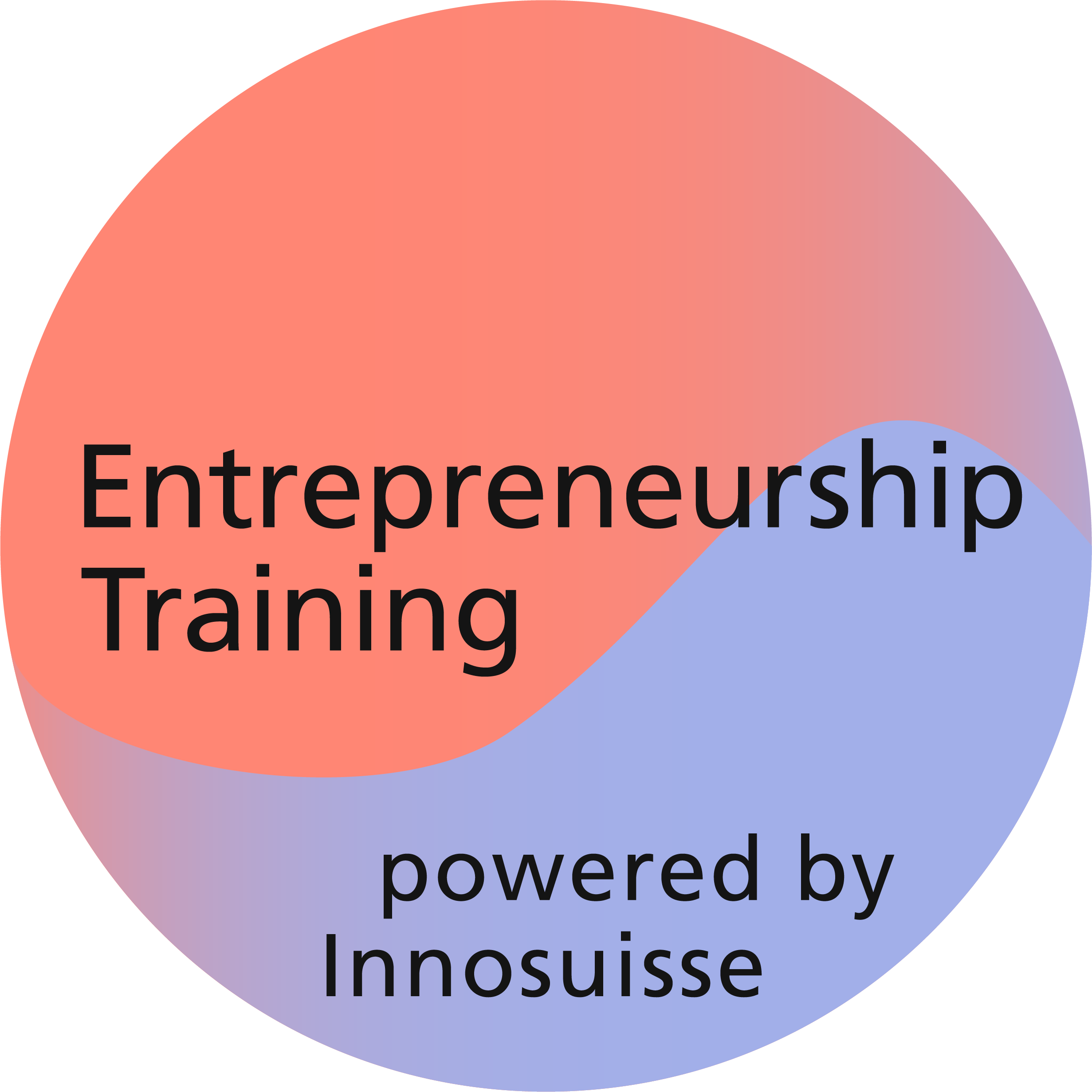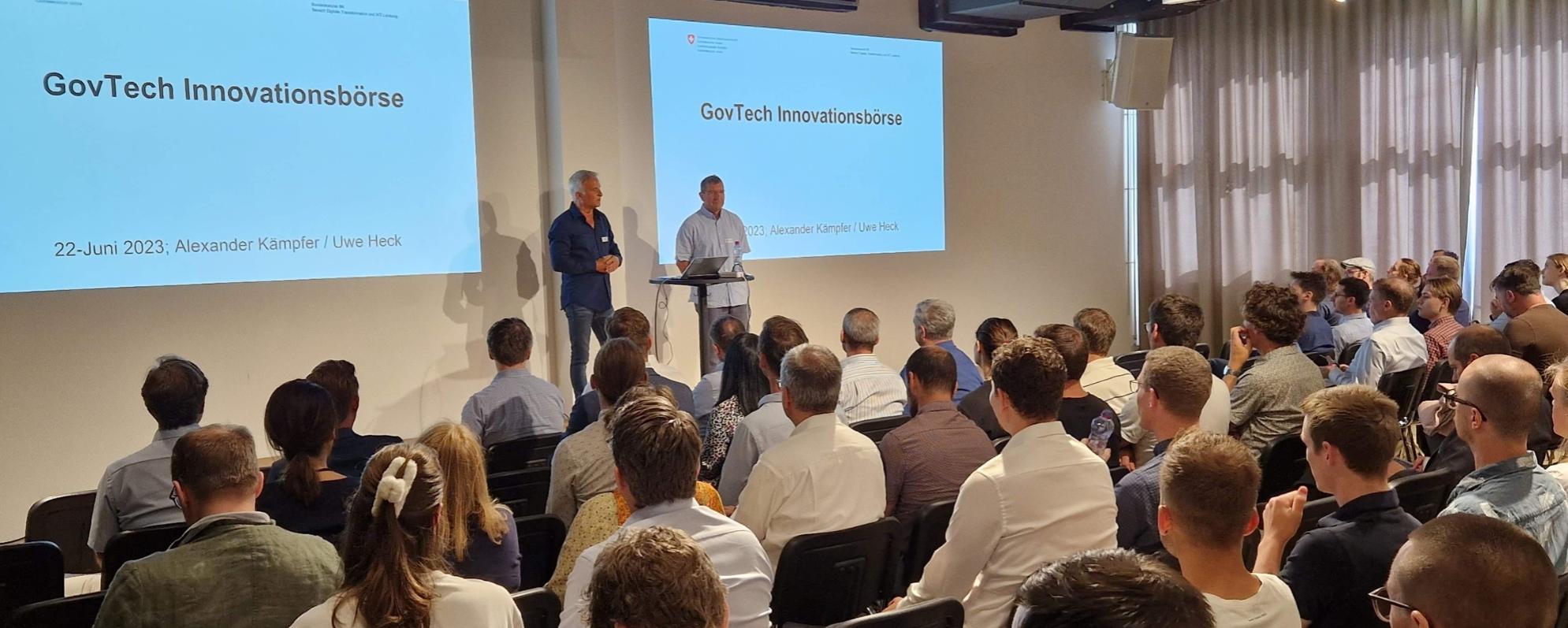An entrepreneur, an investor, and a lawyer participate in an interview series… What sounds like the setup for a joke is serious business: In a new series, we present three different perspectives on convertible loans, term sheets, and shareholders’ agreements so that you can gain new insights to negotiate with more confidence. The third and final article on term sheets comes from Stephan Wehrli, an investment principal and partner at Zühlke Group, a global innovation service provider that supports clients with customized services and products based on new technologies.
Florian Gunz Niedermann, partner and co-head of the Startup Desk at Walder Wyss, and Chris McCall, the CEO of Fotokite, already shared their thoughts on term sheets. Now, we give the stage to Stephan Wehrli, who will provide the investor perspective. Stephan is an investment principal and partner at Zühlke Group, where he describes his work as “assessing early-stage healthtech startups and investing in great teams with promising business models in interesting markets.”
Stephan, what are some mistakes entrepreneurs typically make in their term sheets?
Some entrepreneurs focus too much on one or two single terms while neglecting the big picture and failing to understand what is important for the investors. They might end up with a high valuation while giving in to a brutal anti-dilution agreement. Founders are well-advised to understand the clauses of a term sheet before starting negotiations with investors and to find a good balance between their own interests and the interests of the investors.
How do you explain to your entrepreneurs the need for anti-dilution and liquidation preferences?
We take our time negotiating and explaining our term sheet to the founders, and we work with illustrative examples. The entrepreneurs need to understand why a particular clause is important for us. Once they can take the investor’s perspective, they are much more willing to accept balanced anti-dilution rights and liquidation preferences.
What do you consider a founder-friendly term sheet beyond valuation?
A founder-friendly term sheet does not constrain the entrepreneurs with exclusivities, right of first refusals of a strategic investor, or the likes. The founders need to be able to do what is best for their company’s growth and increase the company’s value. Certain terms like anti-dilution protection and liquidation preferences can also be tailored more founder-friendly while still protecting the investors. The more the interests of the founders and the investors are aligned, the higher are the chances for a positive collaboration and, eventually, a successful exit.
What do you consider an investor-friendly term sheet not considering valuation?
To be considered investor-friendly, a term sheet should represent the interests of the investors and protect their investment. Depending on the type of investor, there is, for example, an interest to take influence—by being represented on the BoD or making sure that the company can be sold after a predefined time. However, to achieve an interesting exit, the founders need to stay motivated to move the company forward and sell it at some point. This can only be achieved if the term sheet is balanced and aligns the interests of the investors with those of the founders.
What terms are a deal-breaker for you in a term sheet?
We always aim to negotiate balanced term sheets where the founders stay motivated in the long run while our interests are protected, and everyone benefits from the upside potential. We, for example, insist on liquidation preference and anti-dilution protection clauses. Furthermore, we are very careful with veto rights, rights of first refusal, and the like—particularly when strategic investors are involved.
What are some of the key things you learned during valuation negotiations?
At the early stage, we usually invest in startups; it seldomly makes sense to approach valuation in a purely financial manner. I learned to identify the signs that boost and lower the valuation outside of the financial indicators. Furthermore, I learned that many founders aim quite high when it comes to valuation, not being aware of the consequences a down-round implies. Just because someone is willing to pay a certain valuation does not make it necessarily a good deal for the founders in the mid to long term.
To learn more about different financing options and get the possibility to pitch in front of investors, sign up for the Innosuisse Start-up Training.
Related stories

How to create better shareholders’ agreements—an entrepreneur’s perspective
An entrepreneur, an investor, and a lawyer participate in an interview series… What sounds like the setup for a joke is serious business: In a new series, we pr...

How to create better shareholders’ agreements—a lawyer’s perspective
An entrepreneur, an investor, and a lawyer participate in an interview series… What sounds like the setup for a joke is serious business: In a new series, we pr...

How to create better shareholders’ agreements—an investor’s perspective
An entrepreneur, an investor, and a lawyer participate in an interview series… What sounds like the setup for a joke is serious business: In a new series, we pr...

How to better prepare term sheets—an entrepreneur’s perspective
An entrepreneur, an investor, and a lawyer participate in an interview series… What sounds like the setup for a joke is serious business: In a new series, we pr...

How to better prepare term sheets—a lawyer’s perspective
An entrepreneur, an investor, and a lawyer participate in an interview series… What sounds like the setup for a joke is serious business: In a new series, we pr...

How to better negotiate convertible loans—an investor’s perspective
An entrepreneur, an investor, and a lawyer participate in an interview series… What sounds like the setup for a joke is serious business: In a new series, we pr...

How to better negotiate convertible loans—a lawyer’s perspective
An entrepreneur, an investor, and a lawyer participate in an interview series… What sounds like the setup for a joke is serious business: In a new series, we pr...

How to better negotiate convertible loans—an entrepreneur’s perspective
An entrepreneur, an investor, and a lawyer participate in an interview series… What sounds like the setup for a joke is serious business: In a new series, we pr...

